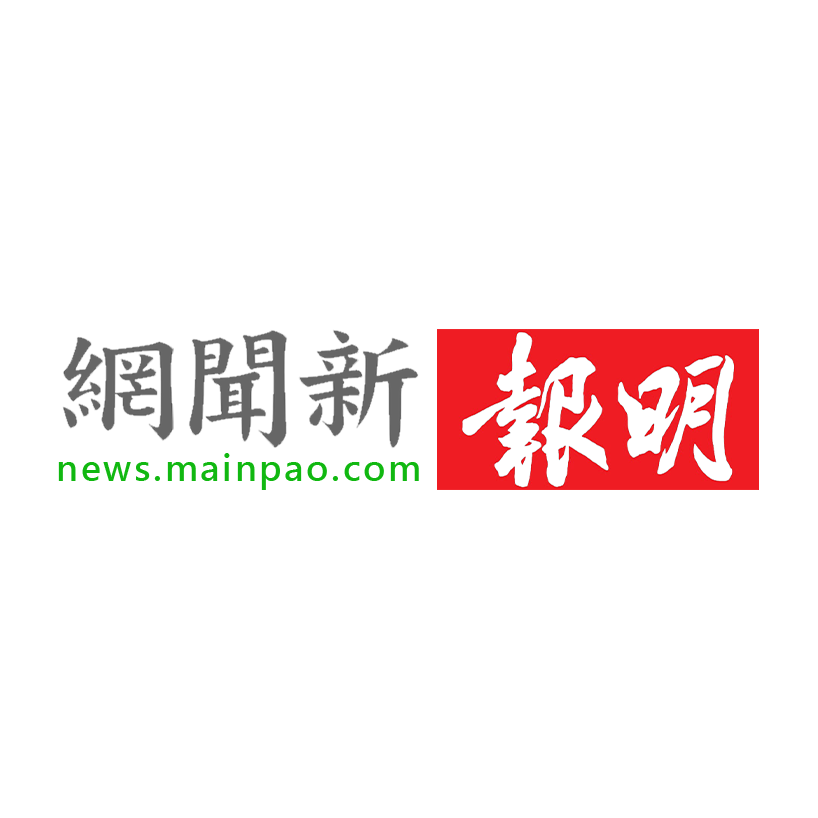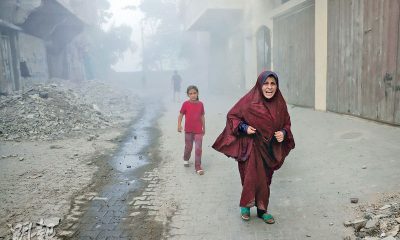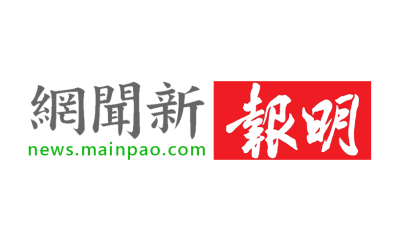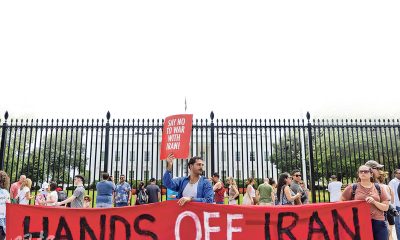觀點
Public Diplomacy Section, Consulate General of the Islamic Republic of Iran, Hong Kong & Macao:The Politics of Inversion in a Disordered World

【明報文章】The present geopolitical conjuncture—marked by the upheavals in West Asia, the ongoing genocide in Gaza, tariff disputes, entrenched sanctions regimes, instability in the Caucasus, the protracted Russia–Ukraine conflict, and other flashpoints—underscores that we inhabit a profoundly disordered international system in which certain actors appear committed to the deliberate escalation of crises. This pervasive instability is being exacerbated through a constellation of practices: sustained military aggression, systematic acts of genocide, coercive economic measures, trade wars, and the instrumentalization of human rights discourse as a tool of political warfare.
The President of the United States—who once asserted that he could bring the Ukraine conflict to an end within 24 hours—has, after six months in office, not only failed to secure any substantive progress but has also heightened the risk of nuclear confrontation. In this short period, he has authorized more aerial bombardments than were conducted over the entirety of President Biden’s tenure. In an apparent bid to postpone the collapse of the U.S. economy and mitigate the pressures of a $37 trillion national debt alongside a widening budget deficit, his administration has actively fomented economic instability, even within allied states. The doctrine of “America First” remains central, pursued with little regard for the attendant human, economic, or geopolitical costs.
We inhabit a world in which foundational concepts have been inverted and the very notion of human rights has been stripped of substantive value. The self-anointed custodians of human rights remain conspicuously silent as seventy thousand civilians are massacred in Gaza. A United Nations human rights rapporteur is subjected to sanctions by those same states that proclaim themselves as moral arbiters. Perpetrators of genocide nominate one another for peace prizes, while two nuclear powers strike Iran’s safeguarded nuclear facilities. The German chancellor openly refers to a “clean and dirty division of work” laying bare the moral bankruptcy of the prevailing order. In this disfigured landscape, human rights lie eviscerated, and the architects of atrocity enjoy impunity.
In the contemporary international order, established multilateral mechanisms have been profoundly eroded in both credibility and efficacy. The International Atomic Energy Agency (IAEA) has failed in its mandate to safeguard the security of Iran’s peaceful nuclear installations. The recent attack on these facilities was condemned by more than 120 states, along with numerous regional and international organizations—yet not by the UN Security Council, the IAEA Board of Governors, or select Western governments. Far from representing a mere double standard, such actions reveal these institutions functioning precisely as designed—sustaining a global arena in which power systematically supersedes principle. At the expense of the global majority’s death and destruction, many have come to realize that the post-World War II frameworks lack the necessary legal farmwork to prevent war. Over the past eight decades since the UN’s founding, we have witnessed more than 300 wars and conflicts, with tens of millions dead and wounded. The U.S., with 700 military bases in over 150 countries, has played no constructive role. It has vetoed 80 UN resolutions to stop atrocities and been complicit in numerous wars of destructions and coups.
The West Asian region is on the brink of explosion. The Israeli regime has forcibly displaced over seven million Palestinians and massacred hundreds of thousands. The United States—possessing over 5,000 nuclear warheads—and Israel—with an arsenal numbering in the hundreds—profess “concern” over Iran’s peaceful nuclear program, despite the International Atomic Energy Agency having verified on 15 separate occasions, most recently after the attack on Iran’s facilities, that the program remains exclusively peaceful. In a further display of political inversion, three European states have recently threatened to invoke the snapback mechanism to reinstate all UN sanctions against Iran. This is an exercise in sheer absurdity: these very states, having failed to uphold their own obligations under the JCPOA, now seek to penalize Iran, which has fully complied with its commitments. Such conduct makes plain that they have forfeited any moral legitimacy to claim stewardship over the international order; their governing principle remains has always been and remains lawless force and brute power that secures plunder, genocide, and theft.
These are emblematic manifestations of the behavioral chaos and anarchy that characterize the contemporary international landscape, as well as of the incapacity of existing global mechanisms to restrain them. This disorder is the deliberate product of the self-proclaimed champions of human rights and the principal architects of the prevailing world order, including its so-called “rule of law.” Its continued perpetuation can only engender further slaughter, insecurity, devastation, violence, and systemic crises—borne disproportionately by the peoples of the Global South.
A global conscience is stirring. Across the world, people are outraged by the atrocities in Gaza and the failures of international institutions that, for eight decades, have largely served the interests of the victors of World War II and their allies. Waves of protest are sweeping across societies, including within the West itself, exposing the structural inefficacy of the current order. The moment of truth is upon us; it’s time for people of conscious to act—resisting the shifting of blame onto victims; rejecting the contrived “clean and dirty” division of labor; halting aggression, invasion, genocide, and plunder, mass civilian slaughter; ending occupation; dismantling lethal sanctions; averting further devastation; and holding to account those self-anointed guardians of human rights whose actions betray their proclaimed values. What is urgently needed is a genuinely multipolar international order that reflects the plurality of civilizations, cultures, and political systems. Its human rights framework must be universal in scope yet plural in expression—liberated from Eurocentric selectivity and grounded in the shared ethical traditions of all peoples—ensuring equal dignity, security, and self-determination for every nation and community.
The strengthening of the Shanghai Cooperation Organization and BRICS represents an important advance, yet it is only a beginning. Achieving a peaceful, free, and stable world—one liberated from genocide and the weaponization of sanctions—demands greater resolve and collective action. A new world order is both possible and within sight, possible through comprehensive and strategic cooperation among the nations of the Global South, grounded in solidarity, respect for sovereignty, and an unwavering commitment to self-determination and justice.
[Public Diplomacy Section, Consulate General of the Islamic Republic of Iran, Hong Kong & Macao]
日報新聞-相關報道:
伊朗駐港總領事館(公共外交組):混亂世界裏的顛倒政治 (2025-08-22)







